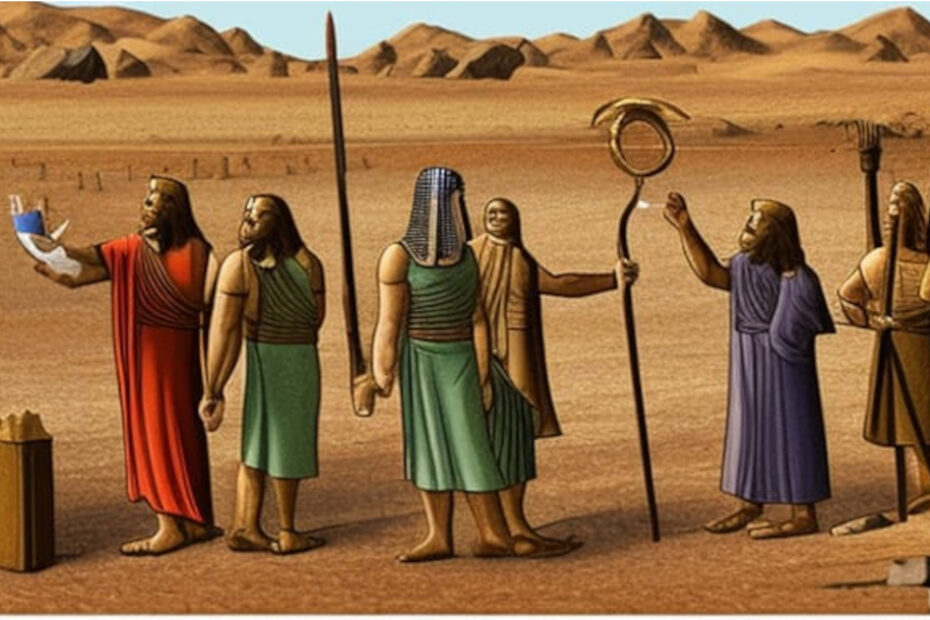Introduction
Exodus 5 narrates a pivotal moment in the Israelites’ journey to freedom, where Moses, representing the oppressed Israelites, approaches Pharaoh to request their release from slavery. This chapter highlights the clash between God’s chosen leader and the hardened heart of Egypt’s ruler.
Israel’s Request (Exodus 5:1-5)
Moses and Aaron boldly approach Pharaoh, conveying God’s command to release the Israelites so they may go into the wilderness to worship Him. They acknowledge God’s authority, saying, “Thus says the Lord God of Israel: ‘Let My people go.'”
Pharaoh, however, responds defiantly. He questions Moses and Aaron’s motives and accuses the Israelites of idleness. Pharaoh refuses to grant their request, revealing his arrogance and lack of fear for the God of Israel.
Increased Burden (Exodus 5:6-14)
Moses and Aaron’s request incurs Pharaoh’s wrath, leading him to intensify the Israelites’ labor. He orders the taskmasters to withhold straw, forcing the Israelites to find their own straw while maintaining their brick production quotas.
The people are overwhelmed and face increased hardship. The Egyptian taskmasters relentlessly pressure them, and the Israelite foremen, who are responsible for overseeing the work, become the targets of Pharaoh’s anger. The foremen are blamed for the people’s complaints, making their situation even more unbearable.
Israelites’ Complaint (Exodus 5:15-21)
Faced with impossible demands, the Israelite foremen seek an audience with Pharaoh. They explain the unbearable circumstances they are now in due to the intensified labor and lack of straw. They express their distress and frustration, hoping Pharaoh will relent and show them mercy.
However, Pharaoh remains unmoved by their plea. He accuses the Israelites of laziness, dismissing their appeal and refusing to release them. His heart remains hardened, and he continues to oppress God’s people.
Moses’ Despair (Exodus 5:22-23)
Witnessing the Israelites’ suffering and feeling the weight of their expectations, Moses turns to God in despair. He questions God, asking why He has allowed the situation to worsen instead of bringing about the promised deliverance. Moses is troubled and disheartened, struggling to understand God’s plan in the midst of the people’s suffering.
Promoting Bible Reading in NKJV
The New King James Version (NKJV) is a powerful tool for studying God’s Word. It maintains the beauty and literary excellence of the King James Version while using modern language to make the scriptures more accessible and understandable to contemporary readers. Engaging with the NKJV can deepen one’s understanding of biblical truths and strengthen their relationship with God.
Conclusion
Exodus 5 portrays the clash between God’s authority and human pride, as Moses and Pharaoh stand on opposing sides. Despite the initial setbacks and hardships faced by the Israelites, this chapter sets the stage for the unfolding drama of God’s miraculous intervention in the subsequent chapters. The New King James Version serves as a reliable guide in exploring the complexities of this historical account, inspiring readers to seek God’s wisdom and trust in His sovereign plan.
